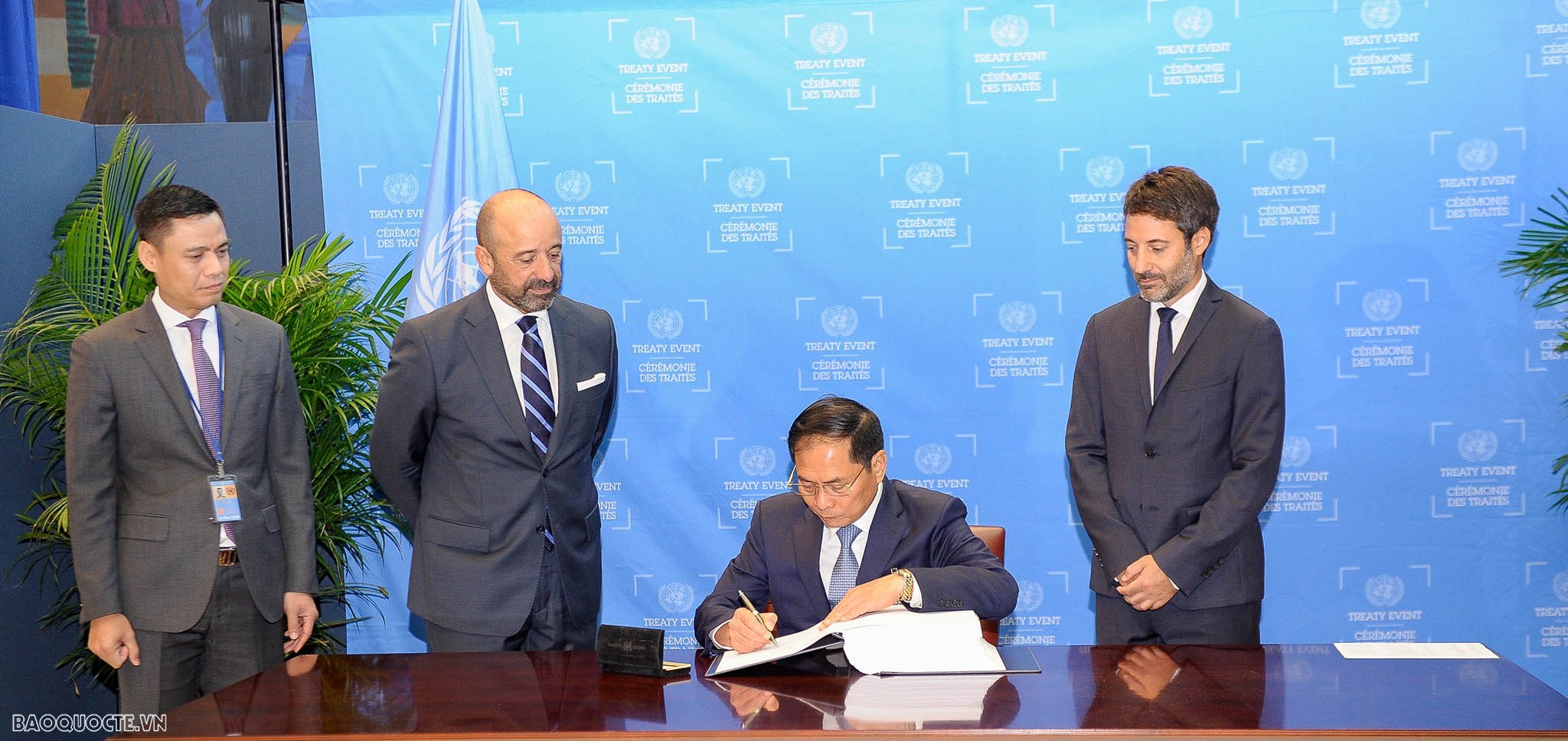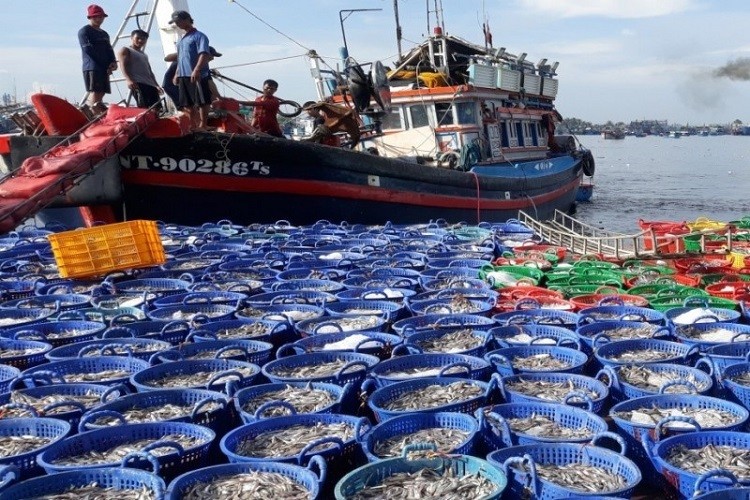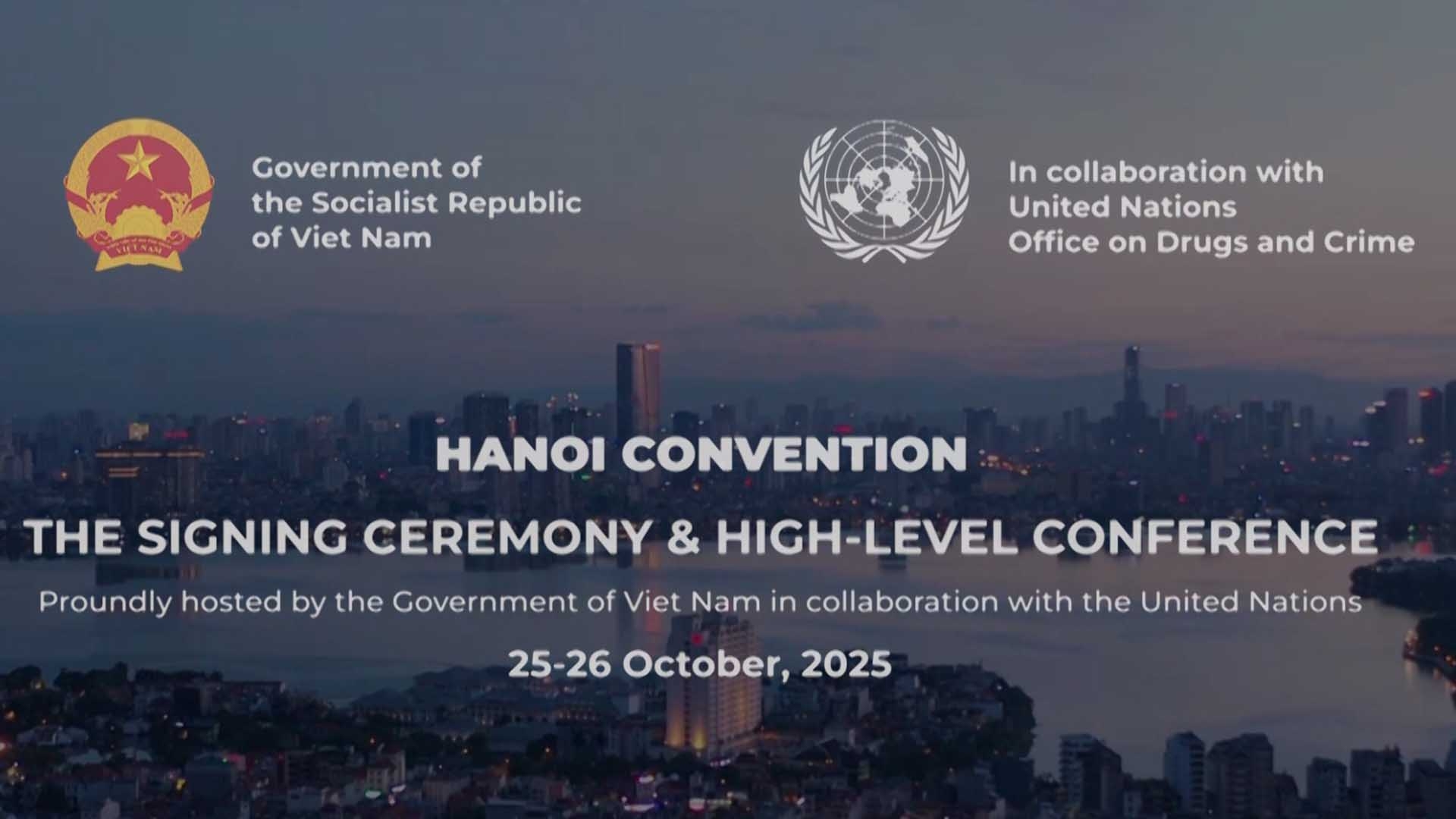
The significance of Vietnam's signing of the Agreement on the conservation and sustainable use of biodiversity in waters beyond national jurisdiction
Latest
 |
| Vietnamese Minister of Foreign Affairs Bui Thanh Son signs the United Nations' Treaty of the High Seas, on September 20, 2023. |
Nearly two-thirds of the world's oceans lie in areas beyond national jurisdiction (ABNJ). This is where 95% of Earth's species are concentrated. 2/3 of fish stocks in waters beyond national jurisdiction are overexploited. Many marine gene resources, which have high economic value in providing food sources, and raw materials for the production of pharmaceuticals and cosmetics, are being freely exploited.
UNCLOS has clearly defined the maritime zones under the sovereignty, sovereign rights and jurisdiction of coastal states as internal waters, territorial waters of 12 nautical miles, exclusive economic zones of 200 nautical miles and continental shelves. However, UNCLOS contains no provision specifically addressing the access, use, ownership and benefit sharing of marine biodiversity resources in ABNJ.
The 1992 Convention on Biological Diversity (CBD) and the 2010 Nagoya Protocol on Access to Genetic Resources and the Fair and Equitable Sharing of Benefits Arising from their Utilization, also known as the Nagoya Protocol on Access and Benefit Sharing (ABS) introduce a number of concepts of "Biodiversity", "Biological Resources", "Gene Resources" and "Genetic Materials".
However, these provisions mainly regulate the management and conservation of biodiversity in areas under national jurisdiction. The 2018 Vietnam Biodiversity Law does not adequately cover forms of marine gene resources and is limited to waters under national jurisdiction. The 2013 Vietnam Law on Science and Technology does not define marine technology and marine technology transfer.
 |
| The implementation of the BBNJ Agreement will bring advantages to Vietnam, a developing country. (Source: thongtindoingoai) |
Marine biodiversity in areas beyond national jurisdiction now faces many risks leading to decline, even to the disappearance of many marine species due to climate change, sea level rise, ocean acidity, deep-sea exploitation, environmental pollution, plastic waste, and other human activities to degrade marine resources and environment.
The BBNJ Agreement has been adopted and opened for ratification on June 19, 2023. The agreement will enter into force 120 days after having at least 60 ratifications of UN member states. The BBNJ Agreement is a supplement to UNCLOS, within the framework of UNCLOS and does not replace the basic principles of UNCLOS. BBNJ is built on the principles of the common heritage of humankind and freedoms of the seas.
The BBNJ Agreement aims (article 2) to ensure the conservation and sustainable use of marine biological diversity of areas beyond national jurisdiction, for the present and in the long term, through effective implementation of the relevant provisions of the Convention and further international cooperation and coordination. The Agreement emphasizes the principle of taking into account the needs and priorities of developing countries, creating great advantages for Viet Nam and developing countries in building and enforcing a fair and equitable maritime legal order.
| Stating that the adoption of BBNJ is a miracle, President of the 77th United Nations General Assembly Csaba Korosi said that countries have together laid the foundation for better management and protection of the oceans for future generations. The passage of BBNJ not only affirms the victory of diplomacy and multilateralism, but is also a historic step against trends of destroying oceans, following the UNCLOS 1982 in building and enforcing legal order on seas and oceans for the sake of peace, cooperation, development and clean environment. |
The implementation of the BBNJ Agreement will bring advantages to Vietnam, a developing country, such as:
Having a clear legal framework as a basis for fighting for the conservation and sustainable use of BBNJ, fair and equitable sharing of benefits (monetary and non-monetary) from marine genetic resources in ABNJ as well as in the use of regional management tools, including Marine Protected Areas effectively, respecting the sovereignty and interests of States. A Marine Protection Zone or Peace Park initiative can be applied in the Spratly Islands area based on the agreement of the States and regional organizations concerned.
Receiving assistance in capacity building and transfer of marine technology from developed countries. Having the opportunity to access advanced marine technologies in the field of marine gene resource management.
Ensuring that Vietnam's interests are not limited to the East Sea but extend across the oceans and seabed beyond national jurisdiction.
Providing opportunities to fight to maintain the effectiveness of UNCLOS and the consistency of other documents in accordance with UNCLOS.
Building legal and scientific staff to meet the development of the world and the requirements of the renovation.
Promoting extensive international cooperation to resolve maritime issues.









